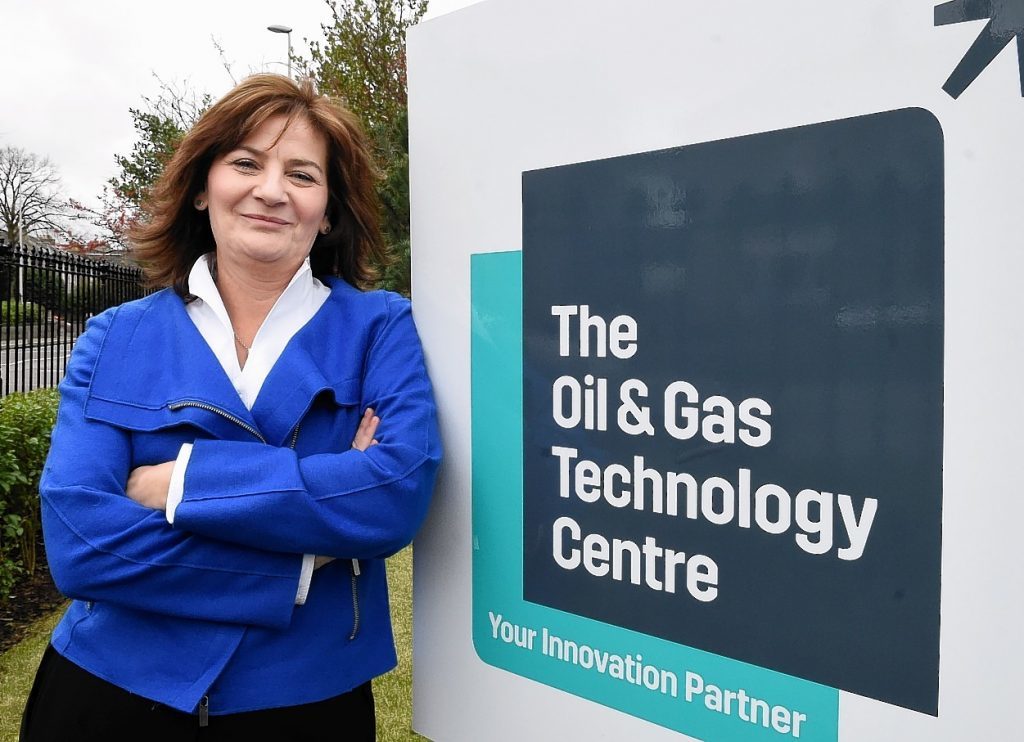
The boss at the Oil and Gas Technology Centre (OGTC) has said that the North Sea needs a firm hand on the reins to prevent it from surrendering the gains of the last two years.
Colette Cohen, OGTC chief executive, said North Sea industry had been through a tough time, but had done a great job of taking costs out.
It now needs to find ways to keep lowering costs and make efficiency savings sustainable, she said.
Ms Cohen was speaking after the identities of the first three projects to receive OGTC support were revealed.
She said the centre had some flexibility when deciding which companies to support.
OGTC is funded through the Aberdeen City Region Deal, but that does not mean only Granite-City-based firms are eligible for help.
The city deal is supported by the Scottish and British governments, which means that companies far and wide can work with OGTC, as long as their projects generate revenue in the UK North Sea and create UK jobs.
An OGTC ‘call for ideas’ to transform well plug and abandonment attracted responses from all over the UK, as well as from Norway and Europe.
The level of co-funding firms have to stump up can also be adjusted to take into account the maturity of their technologies.
Not all of the backing comes down to cold hard cash, either. OGTC is also helping provide equipment, “sweat equity”, data, access and field trials.
As it uses public funds, the centre will have a stringent process for checking how money is spent, Ms Cohen said.
She said OGTC was striving to create momentum and give companies courage to use innovative new technologies.
About eight field trials are expected to be carried out this summer for non-intrusive inspection tools.
Ms Cohen said: “Research and development is only good if it’s going to be deployed, to my mind.
“Getting validation for technologies through field trials has been a big hurdle.
“For companies it is a big jump from saying something looks really interesting to saying, ‘yes, I can use that’.
“We want to build up confidence and data so that companies can say they’ve got enough to justify using non-intrusive inspection, which currently is not used by nearly 90% of North Sea industry.”
Ms Cohen also said a number of oil majors, including Chevron, Nexen and Total, had chosen to get involved in the solutions centres operating within OGTC.
She said the centre was determined to be better than other technology development groups when it comes to taking operators’ problems and matching them with suppliers who have answers.
Ms Cohen said: “Linking operators with technology solutions is the key reason we exist.
“Operators are coming to us and saying they’ve got a challenge. They’re saying, ‘this is the problem, I want a champion.
“One company might have decommissioning challenge in two or three years. They want to know what can be done now to address barriers to decommissioning.
“Our investment will help avoid the hurdle of field trials because we will have started with them in mind.
“That’s not how things have been done in the past.”
A number of recent reports have said cautious optimism is returning to the North Sea as job cuts tail off and growth becomes a priority.
Ms Cohen said: “Improvements that have been made have led to better performance and cautious optimism because companies can see how they can control costs.
“But they have also reinforced the need for technology to unlock further potential.
“New fields need to be low cost, and for cheaper fields that are already producing, it’s about getting the maximum amount out of them.
“So there is cautious optimism, but with a firm hand on the reins.”
Recommended for you

